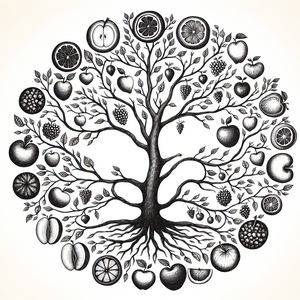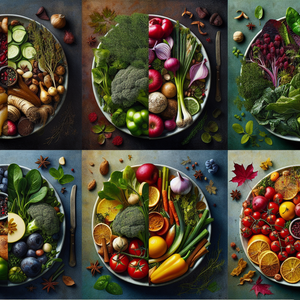Culinary Ventures: Philadelphia’s Food Industry Renaissance

One of the most striking aspects of Philadelphia’s food scene is its diversity. The city is home to a myriad of ethnic communities, each contributing their unique flavors and culinary traditions. Restaurants like Zahav, which showcases Israeli cuisine, and La Calaca Feliz, known for its vibrant Mexican dishes, reflect this cultural melting pot. These establishments not only offer authentic dining experiences but also serve as cultural ambassadors, educating diners about their heritage. Moreover, food festivals such as the Philadelphia Food and Wine Festival and the annual Night Market celebrate this diversity, bringing together local chefs and food vendors. These events allow emerging food entrepreneurs to showcase their creations, fostering a sense of community and collaboration among different culinary traditions. For instance, the Night Market features a variety of local food vendors and has become a vibrant celebration of Philadelphia’s culinary landscape, attracting thousands of attendees who seek to explore different flavors.
Innovative Business Models in the Food Industry
The rise of innovative business models has played a significant role in the transformation of Philadelphia’s food industry. Food trucks have surged in popularity, providing aspiring chefs with the opportunity to start their businesses with lower overhead costs than traditional restaurants. For instance, the success of food trucks like The Cow and The Curd, which specializes in gourmet cheese curds, demonstrates how mobile dining can captivate a broad audience while offering unique culinary experiences. Additionally, the trend of pop-up restaurants and temporary dining experiences has gained traction, allowing chefs to experiment with new concepts without the long-term commitment of a permanent space. These pop-ups, such as Hunger Burger and The Ramen Bar, often create a sense of urgency and excitement, drawing food enthusiasts eager to try something new. The collaboration between different chefs and food artists at these events fosters creativity and innovation, further enriching Philadelphia’s culinary landscape.
Sustainability in the Kitchen
As the world increasingly prioritizes sustainability, Philadelphia’s food businesses are rising to the occasion. Many local restaurants are adopting farm-to-table practices, sourcing ingredients from nearby farms to reduce their environmental impact and support local economies. For example, Fork, a prominent restaurant in Old City, focuses on seasonal ingredients and sustainable practices, showcasing the best of what Pennsylvania has to offer. Also, restaurants like Vernick Food & Drink have received accolades for their commitment to local sourcing and sustainability. Moreover, initiatives like the Philadelphia Urban Farming Initiative are empowering residents to cultivate their own food, promoting not just sustainability but also community engagement. Urban farms, such as The Philadelphia Orchard Project, are sprouting up across the city, providing fresh produce to local restaurants and markets while educating the public about the importance of sustainable agriculture.
The Impact of Culinary Ventures on the Local Economy
The culinary renaissance in Philadelphia is not just a feast for the senses; it is also a significant driver of economic growth. The food industry creates jobs, attracts tourism, and stimulates local businesses. According to a report from the National Restaurant Association, the restaurant industry in Pennsylvania alone employs over 500,000 people and generates billions in revenue. Furthermore, the growing interest in culinary tourism is bringing visitors to the city, eager to indulge in its culinary delights. Food tours, cooking classes, and culinary workshops have become popular attractions, allowing tourists to immerse themselves in Philadelphia’s food culture while supporting local businesses. Organizations like Philadelphia Food Tours and The Cooking School at The Market offer immersive experiences that highlight the city’s rich culinary heritage, attracting food lovers from around the world.
Philadelphia’s food industry renaissance is a testament to the city’s ability to innovate while honoring its rich culinary heritage. From diverse culinary influences to sustainable practices, local food ventures are not only tantalizing palates but also fostering community, driving economic growth, and reshaping the city’s identity. As Philadelphia continues to evolve, its food scene remains a vibrant reflection of the city’s creativity, resilience, and commitment to excellence. Whether you’re a lifelong resident or a first-time visitor, the flavors of Philadelphia offer a delicious journey that captures the essence of this remarkable city. The ongoing culinary ventures in Philadelphia not only provide nourishment but also serve as a catalyst for cultural exchange and economic development, paving the way for a bright future in the city’s gastronomic landscape.
Food Truck Manager
Local food truck companies, culinary startups, and festival vendors
Job Description
Oversee daily operations of a mobile food service, ensuring compliance with health and safety regulations.
Manage inventory, supply orders, and financial records to maintain profitability.
Engage with customers to build a loyal base and handle social media marketing for brand visibility.
Required Skills
Excellent communication
Time management
Knowledge of food safety regulations
Culinary Event Coordinator
Event planning firms, culinary schools, and non-profit organizations focused on food culture
Job Description
Plan and execute food festivals and pop-up dining events, collaborating with chefs and vendors.
Coordinate logistics including venue selection, vendor contracts, and marketing strategies.
Develop budgets and manage expenses to ensure financial success of events.
Required Skills
Strong organizational abilities
Event management experience
Creative problem-solving
Sustainability Chef
Farm-to-table restaurants, eco-conscious dining establishments, and culinary schools focusing on sustainability
Job Description
Create menus that prioritize local, seasonal, and sustainable ingredients while minimizing waste.
Collaborate with local farmers and suppliers to source ingredients and educate staff on sustainable practices.
Innovate cooking techniques to enhance flavor while maintaining environmental responsibility.
Required Skills
Culinary expertise
Knowledge of sustainable practices
Experience in menu development
Food and Beverage Marketing Specialist
Restaurants, food product companies, and marketing agencies specializing in the food sector
Job Description
Develop marketing strategies for food brands, restaurants, or culinary events to attract customers.
Conduct market research to identify trends and consumer preferences in the food industry.
Create engaging content for social media, email campaigns, and promotional materials.
Required Skills
Strong writing and communication skills
Proficiency in digital marketing tools
Passion for culinary arts
Urban Farm Manager
Non-profit organizations, community gardens, and urban agriculture initiatives
Job Description
Oversee operations of urban farms, including planting, harvesting, and community engagement initiatives.
Implement sustainable farming practices and coordinate educational programs for local residents.
Manage budgeting, fundraising, and partnerships with local businesses and organizations.
Required Skills
Knowledge of agriculture and sustainability practices
Leadership abilities
Community outreach experience


